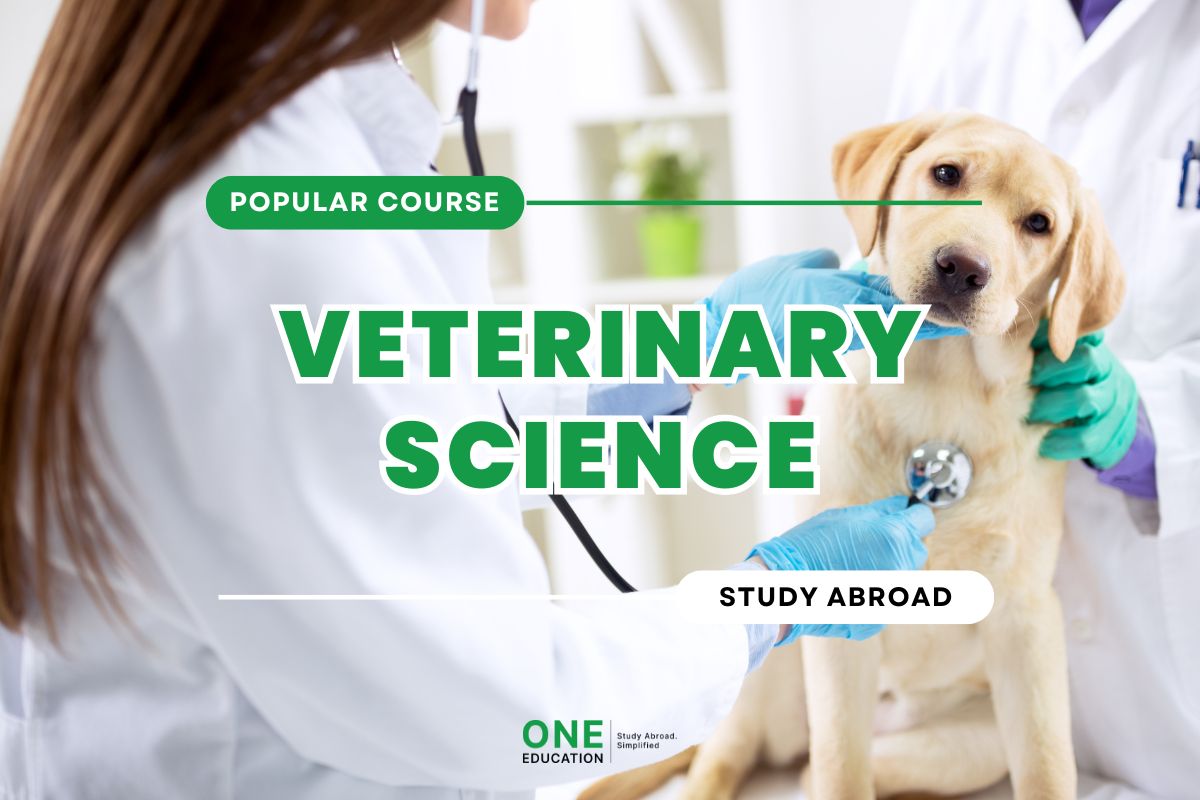Veterinary Science is ideal for individuals passionate about animal care and public health. Veterinarians play a crucial role in diagnosing and treating diseases, preventing zoonotic diseases (those that can spread from animals to humans), and ensuring the overall well-being of animals. This field offers diverse career opportunities, including clinical practice, research, public health, and more. As society increasingly values animal welfare and human health, the demand for qualified veterinarians continues to grow.
What is Veterinary Science?
Veterinary Science is a branch of medical science that focuses on the health and well-being of animals. It includes the study, prevention, diagnosis, and treatment of diseases and injuries in all types of animals; pets, livestock, and wildlife.
Veterinary Science also plays a key role in public health, especially in monitoring and controlling zoonotic diseases and ensuring food safety. It highlights the connection between animal and human health at the public health level. The field covers various aspects of animal care, including medical treatment, surgery, dentistry, and nutritional therapy. Students are required to develop in-depth knowledge in biology, pharmacology, and toxicology.
What skills will you acquire from studying Veterinary Science?
Technical Skills: Students develop a strong understanding of animal anatomy, physiology, diseases, and treatment methods. They also gain essential knowledge about animal care, nutrition, and behaviour, which is vital for maintaining animal health.
Diagnostic Skills: Students are trained to use diagnostic tools such as X-rays, ultrasound, and laboratory analysis. They also prepare to perform surgical and dental procedures safely and effectively.
Medication Administration: Knowledge of drug dosages, routes of administration, and potential side effects is critical for ensuring animal safety during treatment.
Disease Prevention: Understanding disease prevention methods such as vaccinations is vital for controlling disease outbreaks and promoting the health of animals and the general public.
Soft Skills (Emotional Intelligence and Interaction): Veterinarians must communicate effectively, clearly explaining diagnoses, treatment plans, and preventive measures to pet owners.
Problem-Solving Skills: Veterinarians often face various situations that require the ability to analyze problems, develop solutions, and make quick, informed decisions, especially in emergencies where animal lives are at stake.
Teamwork: Veterinarians usually work alongside veterinary technicians, nurses, and specialists. The ability to collaborate effectively is essential for providing comprehensive animal care.
Career Opportunities after a Veterinary Science Degree
- Veterinarian
- Veterinary Surgeon
- Veterinary Dentist
- Wildlife Veterinarian
- Research Scientist
- Higher Education Lecturer/Professor
- Animal Physiologist/Anatomist/Pathologist
- Industry Consultant
- Veterinary Diagnostic Laboratories
Recommended Universities for Studying Veterinary Science
UK Universities for Veterinary Science Programmes
- University of Liverpool
- Bachelor of Veterinary Science (BVSc)
- MSc in Veterinary Physiotherapy
- MSc in Veterinary Professional Studies
- University of Nottingham
- BVMBVS Veterinary Medicine and Surgery
- BSc (Hons) Animal Science
- University of Surrey
- BSc Veterinary Biosciences
- University of Bristol
- BVSc Veterinary Science
- BSc Veterinary Nursing and Companion Animal Behaviour
- BVSc Gateway to Veterinary Science
- Middlesex University London
- BSc (Hons) Veterinary Nursing
Australian Universities for Veterinary Science Programmes
- University of Sydney
- Bachelor of Science and Bachelor of Advanced Studies (Animal and Veterinary Bioscience)
- Bachelor of Veterinary Biology and Doctor of Veterinary Medicine
- Bachelor of Animal and Veterinary Bioscience
- Master of Veterinary Studies (Clinical Residency Program)
- Doctor of Veterinary Medicine
- University of Melbourne
- Bachelor of Science in Veterinary Science
- Master of Veterinary Studies
- Doctor of Veterinary Medicine (DVM)
- University of Queensland
- Bachelor of Veterinary Science
- Bachelor of Veterinary Technology
- Doctor of Veterinary Clinical Science
- Murdoch University
- Bachelor of Science / Doctor of Veterinary Medicine
- Bachelor of Science in Veterinary Biology
- Master of Veterinary Clinical Studies
- Doctor of Veterinary Medical Science
- Adelaide University
- Bachelor of Science (Veterinary Bioscience)
ℹ️ Program information is subject to change without prior notice. Please contact One Education for the most up-to-date details.
Interested in studying Veterinary Science in the UK or Australia?
For more information and assistance with the application process, contact One Education – an official representative of Australian and UK universities. We offer free consultations and support throughout your application journey.
Add our Line official account: @one-edu
Submit your enquiry here – our counsellor will contact you back directly.
Call us: 02-652-0718
One Education | Study Abroad. Simplified
Follow us
Facebook: One Education
Instagram: oneeducationthailand
Twitter: One Education
TikTok: oneeducationthailand
YouTube: One Education
Latest Blogs
You’re Not Alone Abroad: The Student Support Services You Need to Know Psychology Conversion Courses in the UK Recommended 5 Universities to Study a Master’s in FinTech in Australia Must-Have Apps for Students in Australia! Download Before You Fly Want to Change Your Study Path? Conversion Courses in the UK ExplainedCategories
Student Diary
Study UK Tips
Study Australia Tips
Popular Courses
Scholarships
English Promotions





